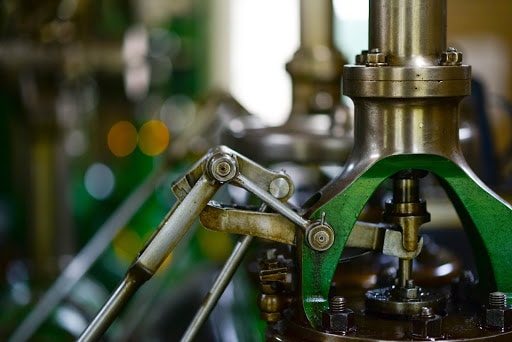As a business owner, you need to buy, use, and – eventually – dispose of the property. And, when you sell something, the IRS wants to get its cut of any gains on that sale. These taxes can take a major toll on your finances. To plan for these taxes, businesses need to first understand them. The IRS does not make this easy. For instance, when you sell a machine, a portion of the gains may be taxed at ordinary income rates. At the same time, another portion of those same gains may be taxed at more favorable capital gains rates.
Seem confusing? That’s Section 1245 property in a nutshell! As such, we’ll use this article to explain Section 1245 property – and the associated tax consequences. Specifically, we’ll cover the following topics:
- What Is a Section 1245 Property?
- Section 1245 Property Gains
- Depreciation Recapture on Section 1245 Property
- How Do I Know If I Have a Section 1245 Property?
- Conclusion: What You Need to Know About Section 1245 Property
What Is a Section 1245 Property?
Generally speaking, Section 1245 property includes the depreciable property used in a business not including real estate. If you depreciate business property and own it longer than 12 months, it likely qualifies as Section 1245. On the other hand, real estate typically falls under Section 1250. However, many real estate owners must deal with Section 1245 tax implications.
When you depreciate property used in your business, you receive an ordinary deduction which reduces your current taxable income. Tax law gives you a benefit, but the IRS wants to claw it back when you sell that property. Let’s say you sell a piece of equipment you used in your business for three years. While in use, you received aits depreciation deduction to offset your ordinary income. If you sell the equipment for more than the adjusted basis cost (original cost minus depreciation), you have a gain. The IRS taxes the portion of that gain attributable to the prior depreciation benefits received at your equal to the total depreciation at your ordinary-income rate. This is the Section 1245 portion of the gain, and it lets the IRS “recapture” prior depreciation. If you have a gain greater than the total depreciation, the excess is taxed at more favorable capital gains rates.
Bottom line, Section 1245 lets the IRS clawback tax deductions on ordinary income when you sell qualifying property.
Section 1245 Property Examples
Section 1245 property includes the following used in a trade or business:
- Tangible, DepreciableDepreciable and tangible personal property (e.g. furniture and equipment), and
- Intangible, AmortizableAmortizable intangible personal property (e.g. patents and licenses)
Common examples of Section 1245 property include:
- Furniture used in a business
- Equipment/machinery used in a business’s production process
- Carpet
- Decorative light fixtures
- Patents
- Sewage disposal services
- Research facilities
- Automobiles and trucks used in business operations
But, it’s important to also understand what Section 1245 does not include. Here are a few examples:
- All real property (e.g. a building and its structural components like exterior walls, floors, and roofs)
- Land
- Business inventory held for sale
Section 1245 Property Gains
With Section 1245, gains are taxed two ways. First, you look at the original cost of an item. Then, deduct the total depreciation. Cost minus total depreciation equals the property’s adjusted cost or basis. If you sell a piece of this equipment for more than the original cost, you experience two gains. From the adjusted cost to the original cost, you have Section 1245 gain. This is taxed at your ordinary-income rate. Any gain above the original cost is taxed at the more favorable long-term capital gains rate.
For example, say you purchased manufacturing equipment three years ago for $50,000. And, say each year you deducted $5,000, for $15,000 total. When you sell, your property has an adjusted cost of $35,000 ($50,000 cost minus $15,000 total depreciation). Now, assume you sell this equipment for $55,000. You have a total gain of $20,000 ($55,000 sale price minus $35,000 adjusted cost). But, only the first $15,000 of gain is considered Section 1245 gain (from the adjusted cost of $35,000 to the original cost of $50,000). The government taxes this gain at an ordinary income rate. The $5,000 gain above the original cost is considered Section 1231 gain and taxed at the long-term capital gains rate.
Short-Term Capital Gains vs. Long-Term Capital Gains
When you sell a piece of property – or capital asset – for a gain, you incur a capital gain. However, the nature of that gain determines its tax treatment. More precisely, how long you held the asset determines its tax treatment.
If you sell something after holding it for a year or less, you incur a short-term capital gain. These gains are taxed at ordinary income rates. Conversely, if you hold that same property for longer than a year, you receive long-term capital gains tax treatment. For most taxpayers, this falls at the 15% rate – far better than the 37% top ordinary bracket.
Section 1245 property must be held for longer than a year. However, as discussed above, gains between A) adjusted cost, and B) original cost are treated as short-term. That is, they’re taxed at ordinary rates. Gains above original cost are treated as long-term capital gains, with a tax ceiling of 20%. It’s important to note that if you purchase an asset and dispose of it in the same tax year, no depreciation deduction is allowed.
Depreciation Recapture
When you depreciate property, you offset your business’s ordinary income – a tax benefit. When you sell that same depreciated property for a gain, the IRS refuses to provide a second benefit. Instead, it takes back – or recaptures – all of that original benefit.
For example, assume you purchased office furniture for $10,000. Typically, you’d sell this for a loss. But, let’s say the same furniture has a $12,000 market value five years later. And, assume you took $5,000 in depreciation deductions over those five years. Now, the furniture has an adjusted cost or basis of $5,000 ($10,000 original cost minus $5,000 total depreciation). That $5,000 of depreciation reduced your ordinary income. As such, that $5,000 of gain will be taxed at your ordinary-income rate. But, the additional $2,000 will be taxed at your more favorable long-term capital gains rate.
Can You Avoid Depreciation Recapture?
No, you can’t directly avoid depreciation recapture. However, you can offset it with proper tax planning. When you have capital losses, these losses can offset other capital gains. Accordingly, if you plan on selling some property at a loss, that would be a good year to sell others at a gain. The losses net against the gains, potentially eliminating them.
How Do I Know If I Have a Section 1245 Property?
To determine if you have Section 1245 property, you need to ask two questions. First, do you have depreciating property? If so, is that property real estate? If not, you have Section 1245 property. This is the difference between Section 1245 property and Section 1250 property. They’re both depreciable, but the latter includes real estate while the former includes everything else you depreciate.
Conclusion: What You Need to Know About Section 1245 Property
Business owners should take three items from this article. First, if you have a property you depreciate, it’s not real estate. It’s Section 1245 property if used in a trade or business. Second, split the gains on this sort of property between ordinary income rates and long-term capital gains rates (Section 1231 property). And third, if you plan on selling this property at a gain, you can offset the tax effect by selling other property at a loss.
We recognize how daunting the tax treatment of business property can seem. That’s why we’re here to help! At Tax Hack, we live and breathe taxes for businesses, so contact us to set up a tax planning strategy session.

